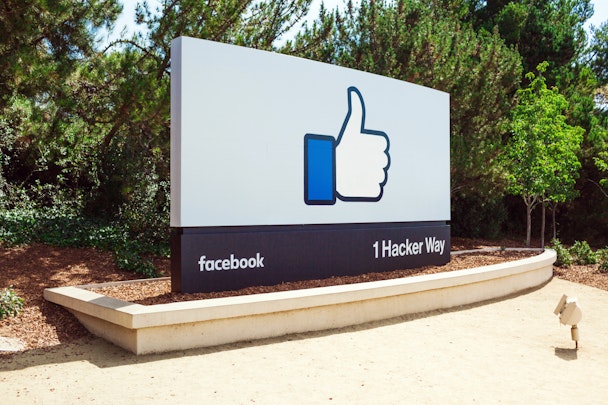Facebook, fake ads and the death of democracy
Mark Zuckerberg's position regarding Facebook is that it is not a ‘media’ but a ‘platform’ which facilitates the conversations of others, so making it more akin to a phone company than a media brand. Therefore, unlike traditional ‘media’, Facebook has no editorial responsibility - or liability - for the content or the advertising it carries.

Does Facebook's claim to be a 'platform' rather than 'media' really stack up? / Facebook
Accept this at face value and it all sounds quite reasonable doesn't it? After all, a phone company isn’t held responsible for the billions of conversations that take place on its lines.
However, the phone company analogy stops the moment you interrupt your customers and insert a paid-for ad into their conversations.
Only last week the money guru Martin Lewis launched a court action against Facebook for not taking down fake ads, which used his name and image without his permission, to promote spurious cyber-currencies.
It's not surprising then that for many people, the closer they look at what is peddled on the pages of Facebook, the faker things become.
And that’s bad enough without even delving into Facebook's lapse that allowed Cambridge Analytica to access the data of over 60 million of its customers without their permission to make commercial gain from allegedly selling it to influence the US elections.
But what is Zuckerberg's response to all of this?
He claims that it is 'difficult’ to monitor all the millions of ads placed on Facebook — but that doesn't mean he shouldn't do it. As soon as Facebook takes money for placing ads on its ‘platform’, it should have the same responsibilities as any media.
The 'platform's' dominant position - and those of its peer group, Google and Twitter, with a combined share of 80% of all digital ad spend, bestows a responsibility on them to act responsibly. Facebook’s profits last quarter saw a 48% growth in revenue over the previous year’s fourth quarter, generating $12.9 billion, which all points to the company having the financial clout to do so.
Last week's revelation in the Sunday Times that Russia created over 6,000 fake Twitter accounts and ‘bots’ to send fake messages on behalf of Jeremy Corbyn, to impact on the result of the UK’s General Election confirms what people have suspected and feared for some time. It is truly frightening that at present a foreign power can use social media to subvert our democracy.
Twitter has also negatively hit the headlines several times in the past few months, especially when it was revealed that Bake Off star Paul Hollywood had allegedly bought Twitter followers by the tens of thousands. The firm he allegedly used can guarantee a hundred thousand followers for £527.
The public’s trust in social media has sunk to an all-time low of just 24%, according to the Edelman Trust Barometer (compared to traditional media, which is at an all-time high of 61%). So while it is in the long-term interests of all the social media players to act now, based on past performance I am not confident they will. The money at stake is simply too large.
It's time we grasp the 'fake' nettle and make social media more transparent. Here are three simple steps I recommend:
Ensure transparent identification of all paid-for social media advertising
Problem: As things stand paid-for social media posts do not need to identify who is paying for them when the public view the posts on their personal feeds.
Solution: Each paid-for post is clearly identified as a sponsored post by the party paying for it.
For any political message, the message and spend behind it needs to be visible on the social media site so that the message can be challenged and the money accounted for within the total campaign budget.
Ensure transparent visibility of all paid-for social media advertising
Problem: Social media advertising is often invisible to other parties or the media and therefore does not have the same level of scrutiny or challenge that traditional advertising has
Solution: To avoid claims of ‘dark arts’ or subversion of democracy, all paid for social media ads should be clearly viewable on the official homepage of each social channel of the party running it.
Curtail the use of Robots
Problem: Non-paid-for social media posts can be made by ‘bots’ masquerading as real people, which can create tens of thousands of automated posts. This distorts online debate resulting in danger to our democracy — all subverted by machines.
Solution: This is an area that is more complex to address, but when it is obvious an account is being automated there needs to be transparent reporting and take-down process in place by the social media companies themselves.
Currently, social media companies are getting away with behaviour that other media are not allowed for very good reasons. Essentially they need to adopt the mantra of truth and transparency and review the way they ‘mark their own homework’ when it comes to measuring their results for advertisers.
Michael Moszynski is chief executive officer of London Advertising and ran the 2005 Conservative General Election campaign as well as a number of presidential campaigns across the world
Content by The Drum Network member:

LONDON Advertising
LONDON is a global advertising agency built for today and is the only agency to have won Agency of the Year for four consecutive years. We create One Brilliant Idea...
Find out more
